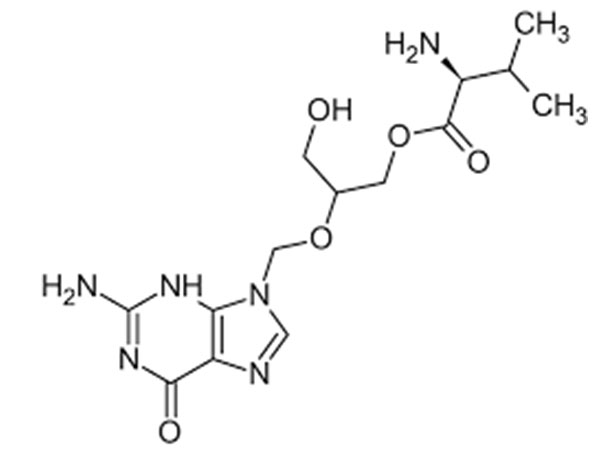Here's an overview of valganciclovir hydrochloride
2024-04-09
Valganciclovir hydrochloride is an antiviral medication used in the treatment and prevention of certain viral infections, particularly those caused by cytomegalovirus (CMV). Here's an overview of valganciclovir hydrochloride:
1. Indications: Valganciclovir hydrochloride is primarily used for the treatment of cytomegalovirus (CMV) retinitis in patients with acquired immunodeficiency syndrome (AIDS). CMV retinitis is a viral infection of the retina that can lead to vision loss if left untreated. Valganciclovir hydrochloride may also be used for the prevention of CMV disease in certain transplant recipients, such as those undergoing kidney, heart, or lung transplantation.
2. Mechanism of Action: Valganciclovir hydrochloride is a prodrug that is rapidly converted to ganciclovir, an antiviral agent, after oral administration. Ganciclovir inhibits the replication of CMV by interfering with viral DNA synthesis, thereby preventing the virus from multiplying and spreading within the body.
3. Administration: Valganciclovir hydrochloride is available in tablet form for oral administration. It is typically taken with food to improve absorption. The dosage and duration of treatment depend on the specific indication, the patient's age, weight, renal function, and other factors. Treatment regimens for CMV retinitis may involve an initial induction phase followed by a maintenance phase.
4. Adverse Effects: Common adverse effects associated with valganciclovir hydrochloride include nausea, diarrhea, vomiting, headache, fatigue, and neutropenia (reduced white blood cell count). Serious adverse effects such as bone marrow suppression, renal toxicity, and gastrointestinal disturbances may occur, particularly with prolonged use or in patients with compromised immune function. Regular monitoring of blood counts and renal function is recommended during treatment.
5. Drug Interactions: Valganciclovir hydrochloride may interact with other medications, including certain antiretroviral drugs, immunosuppressants, and nephrotoxic agents. Concurrent use of nephrotoxic drugs may increase the risk of renal toxicity, while concomitant use of immunosuppressants may increase the risk of bone marrow suppression and infections.
6. Contraindications: Valganciclovir hydrochloride is contraindicated in patients with hypersensitivity to ganciclovir or valganciclovir, as well as in pregnant women (due to its teratogenic effects) unless the potential benefits outweigh the risks. It should be used with caution in patients with renal impairment, as dose adjustments may be necessary.
7. Storage: Valganciclovir hydrochloride tablets should be stored at room temperature (between 20°C and 25°C) in a dry place away from moisture and heat. The tablets should be kept in their original packaging and out of reach of children.
As with any medication, it's essential to use valganciclovir hydrochloride under the guidance and supervision of a healthcare professional, who can provide personalized dosing recommendations and monitor for potential adverse effects or drug interactions.



